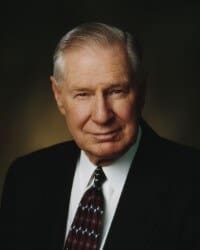
“What we call self-mastery is the necessary price for the things upon which our hearts are set.”
LDS Quotes on Repentance

“What we call self-mastery is the necessary price for the things upon which our hearts are set.”
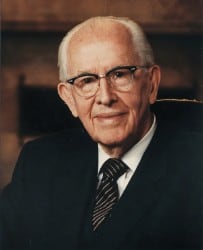
“. . . we must be careful, as we seek to become more and more godlike, that we do not become discouraged and lose hope. Becoming Christlike is a lifetime pursuit and very often involves growth and change that is slow, almost imperceptible. The scriptures record remarkable accounts of men whose lives changed dramatically, in an instant. . . . But we must be cautious as we discuss these remarkable examples. Though they are real and powerful, they are the exception more than the rule. For every Paul, for every Enos, and for every King Lamoni, there are hundreds and thousands of people who find the process of repentance much more subtle, much more imperceptible. Day by day they move closer to the Lord, little realizing they are building a godlike life. They live quiet lives of goodness, service, and commitment. They are like the Lamanites, who the Lord said “were baptized with fire and with the Holy Ghost, and they knew it not.”
| “A Mighty Change of Heart,” Ensign, October 1989, p. 2
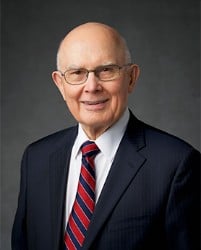
“For most marriage problems, the remedy is not divorce but repentance. . . . The first step is not separation but reformation.”
| Divorce. Ensign, 37(5), 70–73.
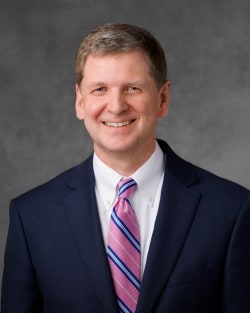
The magnificent, peace-giving promise of the Book of Mormon and the restored gospel is that the Savior will mend all that we have broken. And He will also mend us if we turn to Him in faith and repent of the harm we have caused.
| Ensuring a Righteous Judgment - General Conference 2020

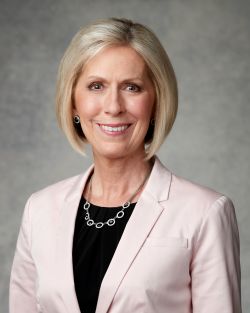
We are always progressing as long as we are striving to follow the Lord.
| An Especially Noble Calling - General Conference 2020
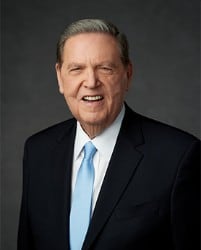
“Keep your eyes on your dreams, however distant and far away. Live to see the miracles of repentance and forgiveness, of trust and divine love that will transform your life today, tomorrow, and forever. That is a New Year’s resolution I ask you to keep.”
| The Best Is Yet to Be

“The vocabulary of sin and guilt and damnation has too often overwhelmed the restored gospel’s message of absolute love and powerfully grounded hopefulness. As Elder Neal A. Maxwell said, summarizing the almost universal misapprehension of overanxious Saints among us, we must learn to ‘distinguish more clearly between divine discontent and the devil’s dissonance, between dissatisfaction with self and disdain for self. We need the first and must shun the second. When conscience calls to us from the next ridge,’ he wrote, her purpose is to beckon not to scold.
“Rather than continuing to frame our lives in terms of deficiency and inadequacy, we would benefit from the perspective of Irenaeus, who emphasized the forward-looking process in which we should be engaged: becoming ‘perfected after the image and likeness of God.'”
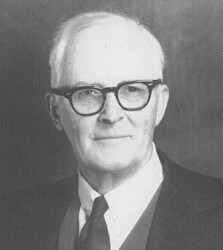
“Who is righteous? Anyone who is repenting. No matter how bad he has been, if he is repenting he is a righteous man. There is hope for him. And no matter how good he has been all his life, if he is not repenting, he is a wicked man. The difference is which way you are facing. The man on the top of the stairs facing down if much worse off than the man on the bottom step who is facing up. The direction we are facing, that is repentance; and that is what determines whether we are good or bad.”
| "Funeral Address"
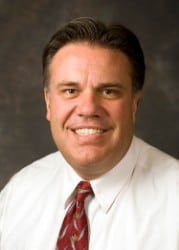
“Perhaps we feel we have stepped beyond that reach of the Atonement by knowingly repeating a previously forsaken sin. We understand that God and Jesus were willing to forgive the first time, but we wonder how many more times they will be willing to watch us bumble along before finally roll their eyes and declare, ‘Enough already!’ We struggle so much to forgive ourselves that we wrongly assume God must be having the same struggle.”
| The Continuious Atonement
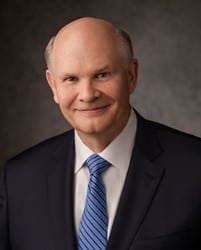
| "Latter-day Saints Keep on Trying"


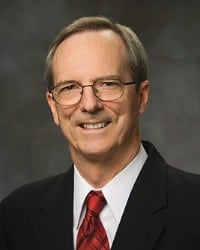
“Elder Neal A. Maxwell suggests that the prime reason the Savior personally acts as the gatekeeper of the celestial kingdom is not to exclude people, but to personally welcome and embrace those who have made it back home.”
| The Infinite Atonement

“No amount of falls will really undo us if we keep on picking ourselves up each time. We shall of course be very muddy and tattered children by the time we reach home. But the bathrooms are all ready, the towels put out, the clean clothes in the airing cupboard. The only fatal thing is to lose one’s temper and give up.”
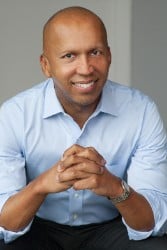
“Each of us is more than the worst thing we’ve ever done.”
| Just Mercy: A Story of Justice and Redemption
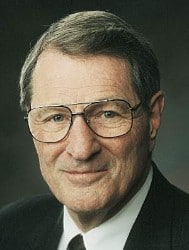
“When we pray, we are not conveying any information to God that he does not already have. Nor, when we confess our sins before him, is it news to him that we have misbehaved. More than we realize, being honest with God in our prayers helps us to be more honest with ourselves.”
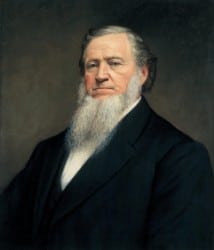
“Do not throw away a man or a woman, old or young. If they commit an evil today and another tomorrow, but wish to be Saints and to be forgiven, do you forgive them, not only seven times, but seventy times seven in a day, if their hearts are fully set to do right. Let us make it a point to pass over their weaknesses and say, “God bless you in trying to be better in time to come,” and act as wise stewards in the kingdom of God.”
| Journal of Discourses, 8:368
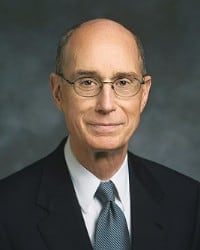
My promise to you is one that a member of the Quorum of the Twelve Apostles once made to me. I had said to him that because of choices some in our extended family had made, I doubted that we could be together in the world to come. He said, as well as I can remember, “You are worrying about the wrong problem. You just live worthy of the celestial kingdom, and the family arrangements will be more wonderful than you can imagine.”
| A Home Where the Spirit of the Lord Dwells
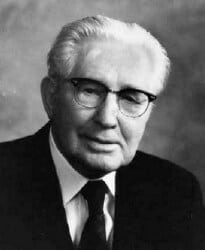
“Don’t insist on remembering things the Lord is willing to forget.”

“When we’re tempted to give up, we must remember God is long-suffering, change is a process, and repentance is a pattern in our lives.”
| The Continuous Atonement

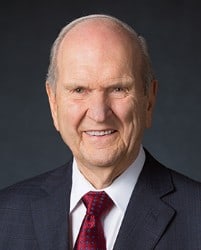
True repentance is not an event. It is a never-ending privilege. It is fundamental to progression and having peace of mind, comfort, and joy.

“You will listen best when you feel, “Father, thy will, not mine, be done.” You will have a feeling of “I want what you want.” Then, the still small voice will seem as if it pierces you…You will act after you have listened because when you hear his voice by the Spirit you will always feel that you are impelled to do something. You mustn’t be surprised if the instruction seems accompanied with what you feel as a rebuke.You might prefer that God simply tell you how well you are doing. But he loves you, wants you to be with him, and knows you must have a mighty change in your heart, through faith on the Lord Jesus Christ, humble repentance, and the making and keeping of sacred covenants.”
| “To Draw Closer to God,” Ensign, May 1991, 67.

The miracle of the Atonement is not just that we can go home but that—miraculously—we can feel at home there. If Heavenly Father and His Son did not require faith and repentance, then there would be no desire to change.
Think of your friends and family members who have chosen to live without faith and without repentance. They don’t want to change. They are not trying to abandon sin and become comfortable with God. Rather, they are trying to abandon God and become comfortable with sin.
If the Father and the Son did not require covenants and bestow the gift of the Holy Ghost, then there would be no way to change. We would be left forever with only willpower, with no access to His power. If Heavenly Father and His Son did not require endurance to the end, then there would be no internalization of those changes over time. They would forever be surface and cosmetic rather than sinking inside us and becoming part of us—part of who we are. Put simply, if Jesus didn’t require practice, then we would never become Saints.
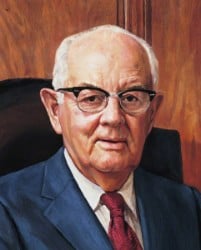
“Rationalizing is the bringing of ideals down to the level of one’s conduct. Repentance is the bringing of one’s conduct up to the level of his ideals.”
| The Miracle of Forgiveness

“I would not have anyone believe that there is no hope if there are some who have made such a grievous mistake, because repentance and forgiveness are also a part of the gospel. Thank God for that! But it must be real repentance. Such repentance is a deep, heartfelt sorrow for sin that produces a reformation of life. It is not just a confession of guilt. Sometimes we regard all too lightly the principle of repentance, thinking that it only means confession, that it only means feeling sorry for ourselves. But it is more than that. It is a deep, burning, and heartfelt sorrow for sin that will drive us to our knees in humility and tears—a deep, heartfelt sorrow for sin that produces a reformation of life. That is the right test: a reformation of life. Only then may the God of heaven in his mercy and his goodness see fit to forgive us. He—not the priesthood on the earth—is the judge. Priesthood holders can only carry out certain requirements. They can require certain things set forth in the revelations, but forgiveness comes from above.”
| God, Family, Country: Our Three Great Loyalties, Salt Lake City: Deseret Book Co., 1974, p. 196

“There are many people who seem to rely solely on the Lord’s mercy rather than on accomplishing their own repentance. … The Lord may temper justice with mercy, but he will never supplant it. Mercy can never replace justice. God is merciful, but he is also just.”
| The Miracle of Forgiveness, Bookcraft, 1969, p. 358.

When spiritually aligned, a poise can come, even when we do not know “the meaning of all things.” (1 Ne. 11:17) Such contented assurance produces not arrogance but quiet acceptance, which is its own form of being “anxiously engaged” but without all the bells and whistles (D&C 58:27; see also D&C 58:28).
However, this spiritual contentment rests on our accepting the Atonement of Jesus, because we “have come to a knowledge of the goodness of God, and his matchless power, and his wisdom, and his patience, and his long-suffering towards the children of men; and also, the atonement which has been prepared from the foundation of the world” (Mosiah 4:6).
Again, brothers and sisters, seeing Alma move from wanting to be a “trump” to being a humble “instrument” and from wanting to “shake the earth” to “perhaps [bringing] some soul to repentance” is a stunning transition! (See Alma 29:1.) Furthermore, isn’t it wonderful that we are permitted to grow, whether that growth is expressed in the space of nine verses or in a lifetime?
| “Content with the Things Allotted unto Us,” Ensign, May 2000, p. 72
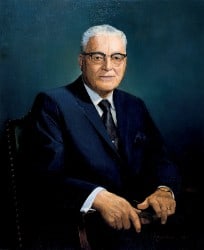
“Never must we allow supposed mercy to the unrepentant sinner to rob the justice by which the true repentance from sinful practices is predicated.”
| Strengthening the Home, 1973, p. 5.

“If the time comes when you have done all that you can to repent of your sins, and have made amends and restitution to the best of your ability; if it be something that will affect your standing in the church and you have gone through the proper authorities, then you will want that confirming answer as to whether or not the Lord has accepted of you. In your soul searching, if you seek for and you find that peace of conscience, by that token you may know that the Lord has accepted your repentance.”
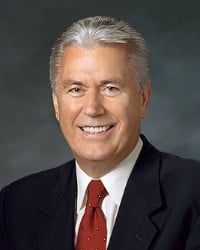
“Our willingness to repent shows our gratitude for God’s gift and for the Savior’s love and sacrifice on our behalf. Commandments and priesthood covenants provide a test of faith, obedience, and love for God and Jesus Christ, but even more importantly, they offer an opportunity to experience love from God and to receive a full measure of joy both in this life and in the life to come.”
| "A Matter of a Few Degrees", Ensign, May 2008, 57–60

Would Alma truly have felt what he describes as ‘exquisite … joy’ if he thought that Christ saved him but left forever harmed those he had led away from the truth? Surely not. For Alma to feel complete peace, those he harmed also needed the opportunity to be made whole.
| Ensuring a Righteous Judgment - General Conference 2020

“God and Christ are omniscient, and yet the promise is: ‘He who has repented of his sins, the same is forgiven, and I, the Lord, remember them no more.’ Our Lord is like the mother of Wendell Berry’s poem, whose forgiveness is ‘so complete that I wonder sometimes if it did not precede my wrong.’ He purposely forgives our sins, to extirpate our shame. The act is sublime.”

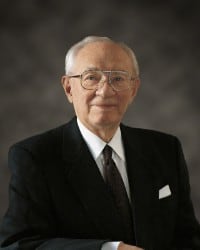
“The remedy for most marital stress is not in divorce. It is in repentance and forgiveness, in sincere expressions of charity and service. It is not in separation. It is in simple integrity that leads a man and a woman to square up their shoulders and meet their obligations. It is found in the Golden Rule, a time-honored principle that should first and foremost find expression in marriage.”
| Standing for Something: 10 Neglected Virtues That Will Heal Our Hearts and Homes
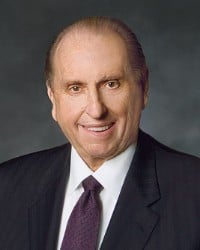
“We need to bear in mind that people can change. They can put behind them bad habits. They can repent from transgressions. They can bear the priesthood worthily. And they can serve the Lord diligently… We can help them to overcome their shortcomings. We must develop the capacity to see men not as they are at present but as they may become when they receive testimonies of the gospel of Christ.’”
| Seeing Others As They May Become, Conference October 2012

Jesus Christ Himself is the Lord of lost things. He cares for lost things. That is surely why He taught the three parables that we find in the 15th chapter of Luke: the parable of the lost sheep, the lost coin, and, finally, the prodigal son. All these stories have a common denominator: It doesn’t matter why they were lost. It doesn’t matter even if they were aware they were lost. There reigns supreme a feeling of joy that exclaims, “Rejoice with me; for I have found [that] which was lost.” In the end, nothing is truly lost to Him.
| Found through the Power of the Book of Mormon